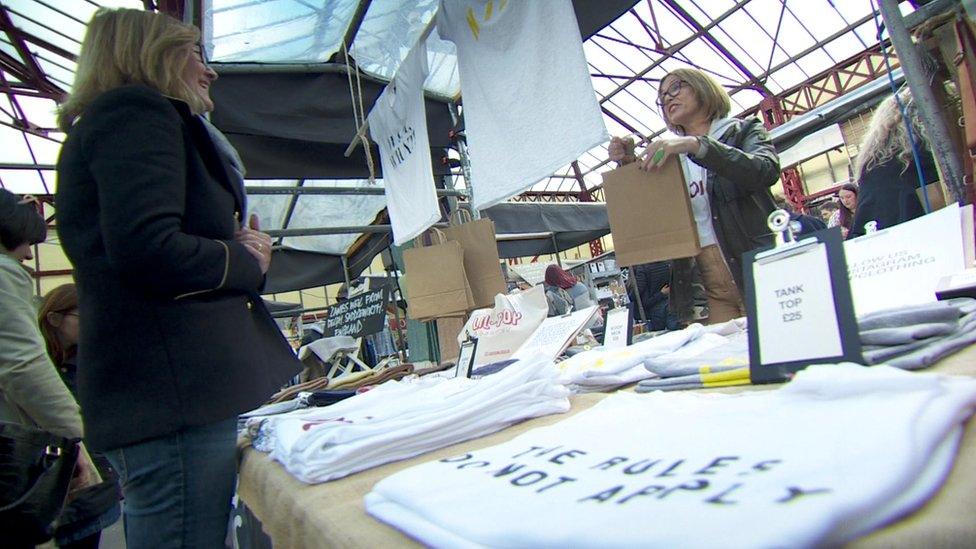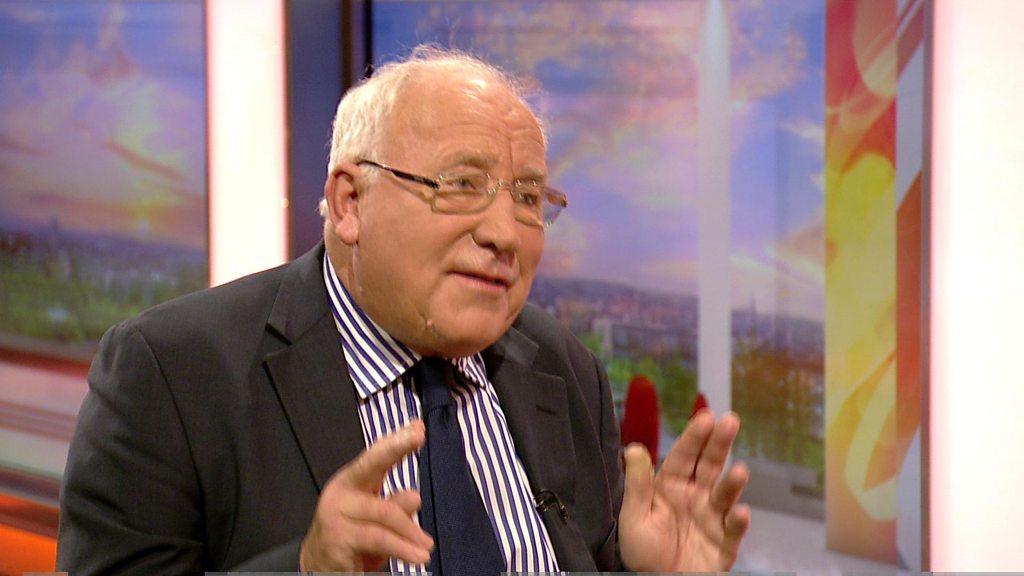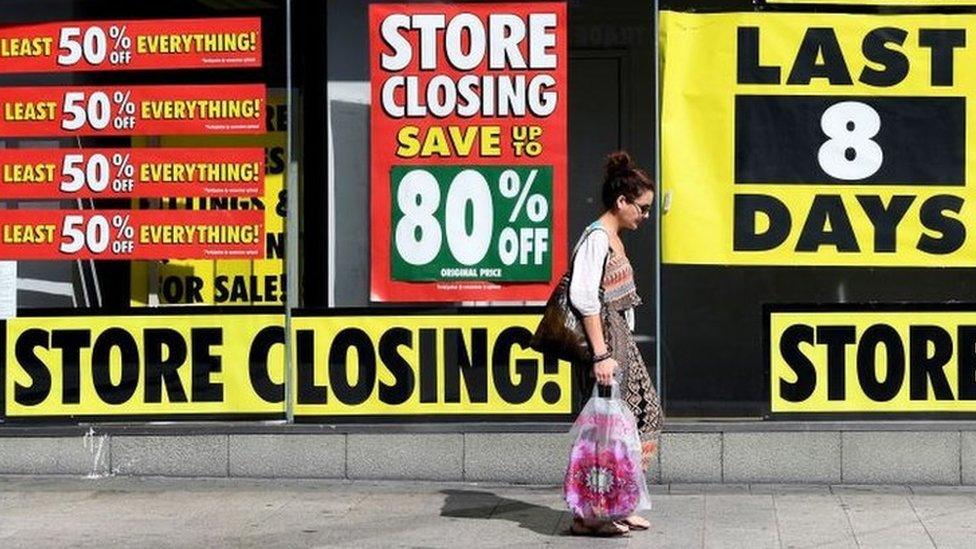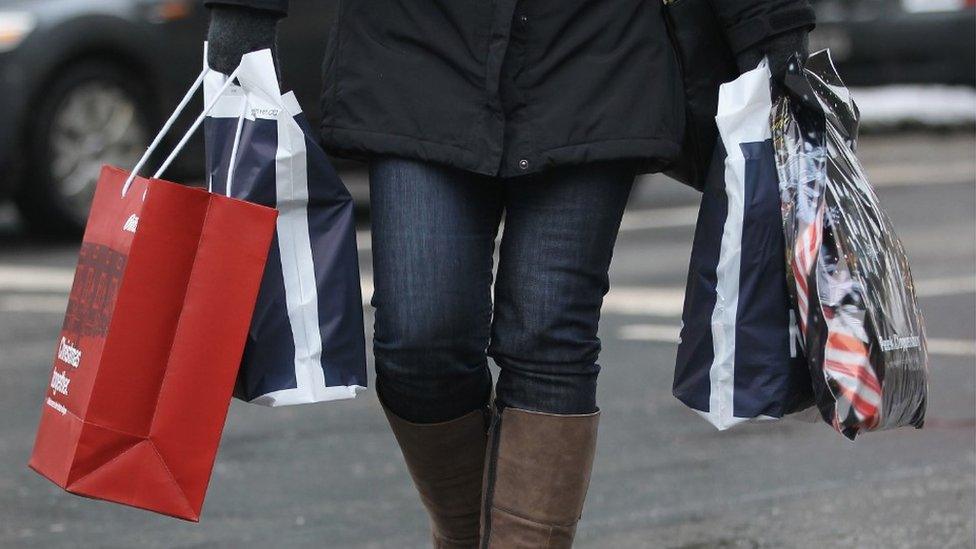UK High Streets 'have twice as many shops as needed'
- Published
- comments
Sir John Timpson: "It's about creating a hub"
Britain has twice as many shops as it needs, according to the author of a report looking at how to revive the nation's High Streets.
Retailer Sir John Timpson said local councils must be given more money to turn town centres into communities and meeting places.
Sir John told the BBC revival should be a "bottom up" job, with councils taking the lead.
"People should be allowed to get on and do it themselves," he said.
Sir John, a member of the founding-family of shoe repair and key-cutting business Timpson, said each town centre needed to establish a task force to address issues such as planning. He said "planning must be made simpler and quicker".
The report wants the £675m already announced in the Budget for High Street improvements to be spent at the local level to improve public spaces and transport links.
The plight of the High Street was underlined on Thursday in retail sales figures for November. Although sales for November rose, that was in large part due to a jump in purchases online.
However, Sir John told BBC Breakfast that reviving High Streets and town centres was not just about shopping. "It's about communities and creating a hub for entertainment, medical facilities, housing. We probably have about twice as many shops as we need. But we are short of housing."
An immediate measure he wants introduced is a National High Street Perfect Day - one day a year where local communities would take ownerships of ensuring their town centre looked as good as possible.

Altrincham's market helped to revive the town centre
His report, released alongside a separate study called High Street 2030, external, also encourages local communities to think innovatively about empty properties, and welcomes the Government's Open Doors scheme which opens empty shops to community groups.
Sir John cited the example of Altrincham, in Greater Manchester, where he began his career in retailing. The town centre had suffered decline, but was turned around by reviving the old market and making it a focus for the community, he said.
"I have learnt, from my own business, that the best way to get things done is to give people on the front line the freedom to get on with the job in the way they know best," Sir John added.
High Streets Minister Jake Berry, who commissioned the report, said his department would now "carefully consider" Sir John's "proposed tangible ways to keep these treasured spaces alive and thriving for generations".
He said: "We have already taken action by announcing plans to set up a Future High Streets Fund and Task Force, alongside slashing business rates for up to a third of small retailers."
It has been seven years since retail guru Mary Portas was given a similar task to look into the decline of town centres. However, the decline has continued.
A report last month by accountancy firm PwC found that about 14 shops are closing every day, with High Streets face their toughest trading climate in five years.
A net 1,123 stores disappeared from Britain's top 500 High Streets in the first six months of the year. PwC said fashion and electrical stores had suffered most as customers did more shopping online.
Restaurants and pubs also floundered as fewer people go out to eat or drink.
- Published20 December 2018

- Published17 December 2018

- Published9 November 2018

- Published20 December 2018

- Published16 December 2018
